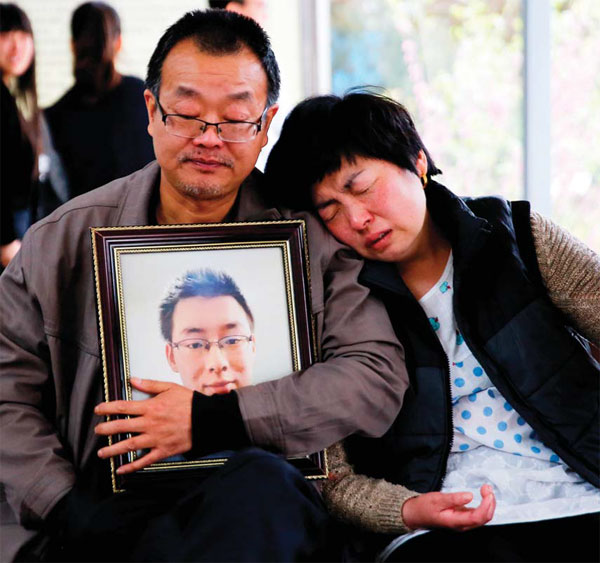Cancer case hospital closes for probe
Updated: 2016-05-06 06:56
By Wang Xiaodong(China Daily Europe)
|
|||||||||
|
|
The military hospital at the center of a case in which a dying cancer patient accused search engine Baidu of providing misleading medical information has suspended all services to allow for an investigation.
The Second Hospital of the Beijing Armed Police Corps has said it would respond by May 7 to requests from patients seeking compensation, Beijing News reports.
"Due to the hospital undergoing education and rectification, we will from today temporarily suspend all external services," the hospital said on May 4. The services include emergency care, and outpatient and inpatient care.
The People's Armed Police Force has promised to cooperate fully with the investigation. In a statement released on the Chinese military's news website, the force said it paid great attention to the case and had already sent its own team to the hospital.
Wei Zexi, a student at Xidian University in Xi'an, Shaanxi province, died in early April after receiving immunotherapy treatment at the hospital. Media reports and patients claim the hospital says in its promotional material that the techniques it used for cancer treatment come from Stanford School of Medicine in the United States.
Jana Chow, manager for media relations at Stanford Health Care, said in an email on May 4 that Stanford has "no connection to this hospital, or to this case".
Becky Bach, a media specialist at Stanford School of Medicine, says the college has never had any cooperation with any Chinese hospital in cellular treatment, including the hospital in this case. She doesn't understand why the hospital emphasized the techniques were introduced from Stanford, Caixin magazine quoted her as saying on its WeChat account.
Wei was diagnosed in 2014 with synovial sarcoma - a rare, often terminal cancer of the soft tissue. His parents sent him to the hospital last year after reading on Baidu that the immunotherapy used there had been developed at Stanford and was effective. The student disclosed this online in February, two months before he died.
Families and relatives of patients who have received or are receiving similar treatment say they turned to the hospital after learning from websites or newspapers that the therapy is effective and had been introduced from the US.
According to descriptions on Baidu of the therapy used by the hospital, it treats diseases by extracting immune cells from patients, reproducing large numbers of them to be re-injected into a patient to kill a disease or virus.
Families and relatives of patients receiving the therapy at the hospital confirmed the descriptions.
The website of Stanford School of Medicine states that the school has immunotherapy programs, but the research is in the clinical trials.
wangxiaodong@chinadaily.com.cn
Today's Top News
Testing times
Big hopes as China hosts the G20
Inspectors to cover all of military
Britons embrace 'Super Thursday' elections
Campaign spreads Chinese cooking in the UK
Trump to aim all guns at Hillary Clinton
Labour set to take London after bitter campaign
Labour candidate favourite for London mayor
Hot Topics
Lunar probe , China growth forecasts, Emission rules get tougher, China seen through 'colored lens', International board,
Editor's Picks

|

|

|

|

|

|








